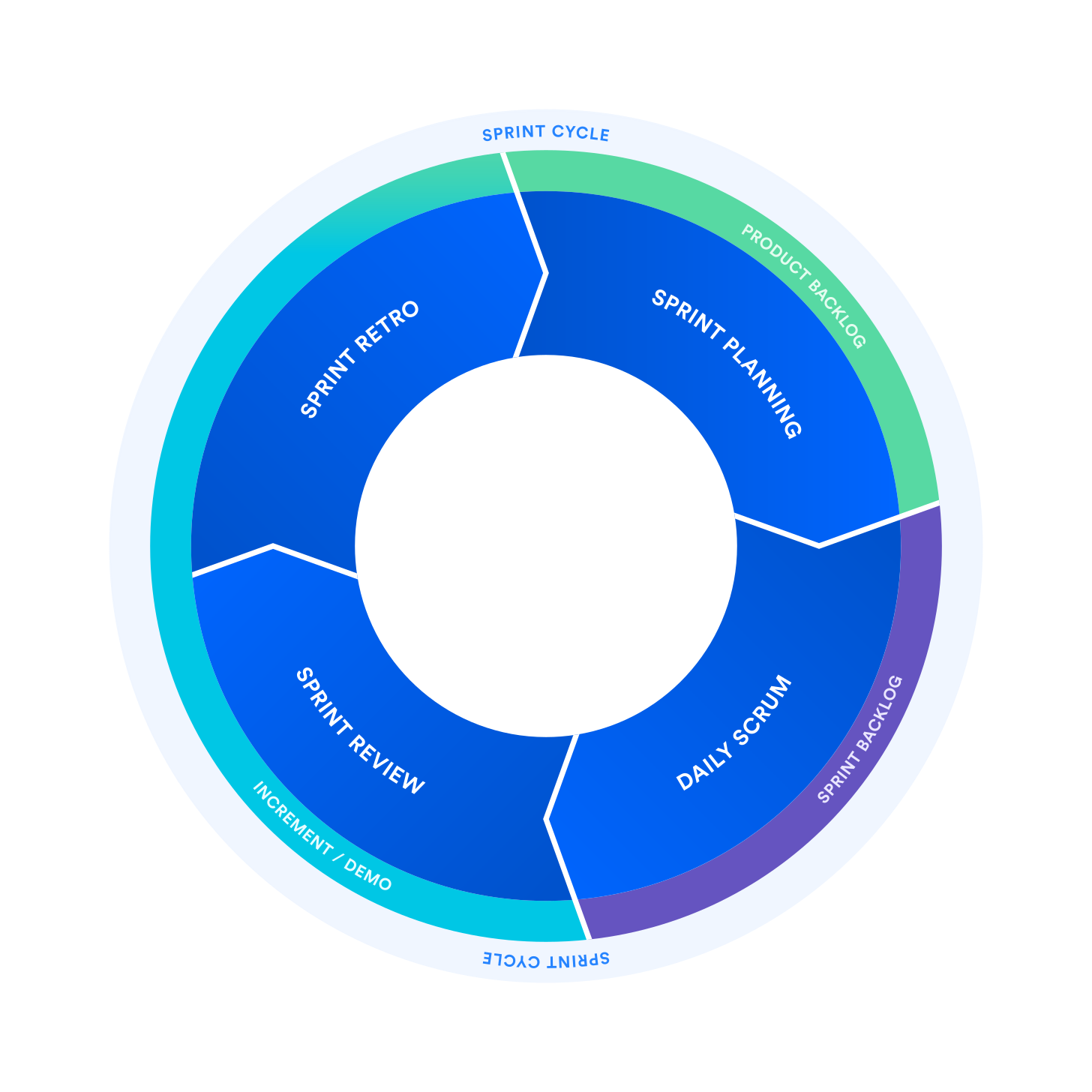#007 - You can't sprint your way through a marathon
Welcome to Issue #007 of The Forcing Function - your guide to delivering the right outcomes for your projects and your users.
✍️ Insights: Constantly sprinting simply leads to constant burn out.
🤔 Made me think: Iterating > perfectionism > procrastination.
👨💻 Worth checking out: An interactive guide on how a mechanical watch works + short film involving a time loop.
✍️ Insights
Constant sprinting leads to constant burn out.
The testing team's update was brutal.
It was a Friday all-hands meeting for our IT delivery programme. Each team did their update with their usual positive spin on progress. In complete contrast, the testing team delivered their withering verdict that we were failing.
They were adamant that we were behind schedule, that quality was as low as it had ever been, and the outlook for getting back on track was poor.
We had all been going full-pelt for months now. Multiple milestones were behind us with multiple more to come. It was all becoming a bit of a blur. Confusion reigned over who was doing what and when, we were creating too many unforced errors, and our mood was turning increasingly cynical.
It was clear that this couldn't go on for much longer.
It didn't and we had to stop to reset. Going at full pace for as long as you can might seem a logical way to maximise output. But you only need to scratch below the surface of that statement to realise that only works in the short term and for short bursts.
Nature imposes her limits on us all. You can ignore these at your peril or be smarter about overcoming them. As these two examples, one personal and one historical, illustrate.
Sprinting in projects to sprinting in real life
Ignoring my limits: The incessant demand to "close your rings"

I never thought my number one reason for having an Apple Watch would be for my marriage. But seven years on, I never miss a call or message from my wife. So, I would recommend getting one just for that.
Coming a close second is tracking my fitness which has been beneficial but with an important caveat.
Apple heavily promotes this aspect. Especially the gamified feature of "closing your exercise, move, and stand rings" along with a weekly summary to show if you kept your streak going. Both can help create and instil a daily fitness habit.
The caveat, however, is that there's no way to take a break from closing your rings each and every single day. At first, it was fun and motivating. Over time, it became harder to maintain and there were days where I cheated just to keep the streak going.
Then I caught COVID-19.
I was completely knocked out. It took me two weeks to test negative and another two before I could do any exercise. All the while, my Apple Watch was constantly reminding me to keep going when it was clear I couldn't.
Chasing the streak wasn't sustainable for me. And, clearly, it wasn't healthy for me either. So I stopped, turned off the coaching messages, and accepted that it's ok not to have the streak.
Nowadays, I still track my fitness but in a more sustainable way which builds in rest days.
Training smarter not harder: London Marathon 2022 vs London Olympic Marathon 1909
To enter as an elite athlete for the 2022 London Marathon in a few weeks, you need a qualifying time which is under 2 hours 40 minutes. That qualification time is 15 minutes 18 seconds faster than the marathon world record set at the London 1909 Olympics.

Driving that improvement in performance, amongst a multitude of other factors, is how athletes train today. You may think that to get better you should be training harder, faster, and for longer than everyone else. Seems perfectly logical but you'd be mistaken.
This study showed that whilst elite athletes train 500–700 hour per year, "≥ 80% of the total running volume is performed at low intensity throughout the training year".
In other words, they train at high intensity only for 20%. These athletes learned that it's about maintaining a sustainable level of training with sufficient time for recovery. Going flat out typically results in decreasing performance, increasing stress, and a higher risk of injury.
When you don't allow enough time for recovery
Across both of these examples, overtraining is a core concern. It's natural to overtrain because you know if you don't push hard enough, you won't improve. So, it's easy to do more without allowing enough time for your body to recover, grow, and be ready for the next dose of exercise.
Especially, when you have a deadline and are behind in your training programe - or not started it at all.
So you experience symptoms such as:
An inability to perform at your usual pace - let alone improve upon it.
Experiencing high levels of stress which can result in cynicism as well as having a more negative view of yourself.
Being overloaded which can manifest itself as exhaustion and feeling overwhelmed.
Taking "sprinting" too literally in projects
Not allowing sufficient time for recovery is just as applicable to projects as it is to fitness.
In several projects, my clients opted to use Scrum - a popular framework for software delivery. At its simplest level, it's about breaking up the work into smaller units which are incrementally delivered in sprints. A sprint is a short timeframe that runs for a fixed number of weeks before the next sprint begins.

My experience, on the ground, was that the pace was relentless. The expection of having to deliver every 2 weeks, uncompromising. The micro-management on minimising deviations on any of the sprints metrics, unforgiving.
There was no time to pause, to take stock of the situation, or to think strategically.
As a result, I was getting physically and emotionally exhausted with the high workload, long hours, and having to catch up on weekends more and more.
Ideally, there should have been regular breaks to allow for some much-needed recovery. Whether that was using a sprint for maintenance, taking time out for planning, or rotating teams out of the sprint cadence. But, all those options were an anathema to the powers that be.
Their focus was not only maintaining output levels but also increasing it - come what may.
Needless to say, those weren't the projects I enjoyed working on and they were the projects that had the highest attrition rates.
Be realistic, be adaptable, be sustainable
This isn't specific or unique to Scrum as this can happen no matter what framework that you're using.
Whatever you do, however you do it, the key question is whether it is sustainable over the long term.
And even if you have a sustainable approach, what works for one team in one project may not necessarily work for the same team in a different project. There is rarely one approach that fits all projects. Be adaptable, pare back, and advocate for that recovery time.
Delivering a project is usually more like a marathon than a sprint - pace accordingly.
🤔 Made me think
Iteration > perfectionism > procrastination.

And to reiterate: I don't think that Scrum per se is bad. One of its positive attributes is that it requires you to take an iterative and incremental approach.
This is particularly useful when your objective is complicated, changeable, and confusing. Trying to perfectly address the unknown upfront is an exercise in futility. Instead, makes mistakes quicker to learn from direct experience.
Improving as you go gets you started, gets you the feedback to improve upon, and gets you further along faster.
🧑💻Worth checking out
🔗 How a mechanical watch works (Bartosz Ciechanowski): As much as I prefer wearing my digital Apple Watch, I was fascinated by this interactive explanation of how its mechanical forerunner tells the time with physics and engineering.
📺 Exit Strategy (Travis Bible): A 15 min short about a man in a time-loop which doesn't rely on the science fiction and packs an emotional punch to make it a thought-provoking watch.
🖖Until next Thursday ...
If you enjoyed this newsletter, let me know with the ♥️ button or add your thoughts and questions in the comments. I read every message.
And, if your friends or colleagues might like this newsletter, do consider forwarding it to them.
For now, thank you so much for reading this week's issue of The Forcing Function and I hope that you have a great day.
PS: Thanks to P for reading drafts of this.




